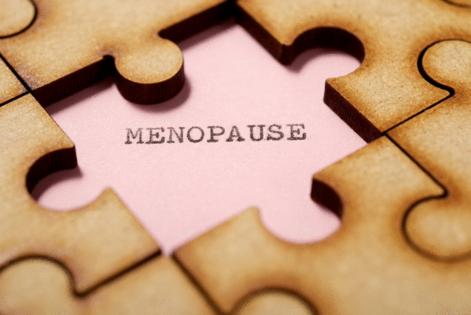Column: Advice to partners coping with menopause: Be patient!
Published in Health & Fitness
“Patience is a virtue” is thought to have originated from a poem written by an English poet, William Langland. It makes me wonder what the author was experiencing at the time. Maybe his partner was going through menopause?
Ironically, the word menopause comes from the Greek words pausis, which means pause, and men, which means month. The term literally translates to the end of monthly cycles.
For some women, it’s just another life transition and ending a monthly menstruation cycle is welcomed. Ditching cramps, irritability, sadness, bloating, and worrying about pads and tampons is a relief. But that’s not the case for everyone. According to a recent survey from the American Association of Retired Persons (AARP), 90 percent of women over the age of 35 can experience menopausal symptoms, some of which can be debilitating and interfere with work and other day-to-day activities. This is a life-altering experience for women. One that many men can not possibly understand.
It’s a time in a woman’s life when her body and mind are reminding her that she’s aging. Imagine that. Hormones diminish, the body will not allow another birth. Suddenly hot flashes, irritability, insomnia, vaginal dryness, and/or sadness set in so harshly and so suddenly a women can lose sense of her own worth. Forty-five percent of women surveyed say they have tried supplements to alleviate their menopause symptoms. And these women, on average, are spending nearly $150 a year on those supplements to help ease symptoms. Some help, some don’t.
Yes, there are new treatments out there. Hormone replacement therapy is one of them, but not all doctors are willing to prescribe them. This is where advocating for oneself and talking opening and honestly with health professionals comes in. No two women are alike. There is not a one-size-fits-all solution.
The menopausal transition can last anywhere from two to 14 years but typically lasts around four to seven years in total. The duration of menopause depends on a variety of genetic and behavioral factors, and there is also pre-menopause and post-menopause to consider. A simple blood test can usually measure hormone levels to determine where a women’s body is in life.
One big factor which seems to be lurking in American society is the stigma very much associated with menopause. Some men are afraid to ask questions, and women don’t necessarily want to share information for many reasons.
I have to put myself in that category. Within the past year, after having an intrauterine device (IUD) removed, I realized I didn’t even talk to my then-gynecologist about how to replace the hormone progestin that the device was feeding my body. She didn’t bring it up, neither did I. Sadly, I felt my sharp, happy self slipping away before my eyes. And I would have never guessed it was because of that.
Luckily, I started telling a few amigas my age and it was they who armed me with information and suggestions to do something about it. I also had the courage to talk to my family even thought I don’t think they fully understood. And I approached my supervisor at work about what I was experiencing. The soft look in her sympathetic eyes let me know she completely understood how I was feeling and offered support.
This doesn’t always happen, due to the stigma. But that may be changing.
In 2022, former first lady Michelle Obama spoke openly about the weight gain and hot flashes associated with her own menopause and how she started talking to her husband about it. She joked how she and her friends would compare symptoms.
In April, Oscar-winning actress Halle Berry, 58, stood with a group of female lawmakers on Capitol Hill to push for the Advancing Menopause Care and Mid-Life Women’s Health Act. It would fund more education and devote tens of millions of dollars to menopause research, to raise public awareness and to train health care providers.
Menopause can hit women at different ages without warning. Look for the signs. Partners — educate yourselves. Talk openly, ask questions and be gentle.
To all the family members, men and partners who are feeling lost too, there is no quick fix. But hugs, a great deal of compassion, sensitivity and patience will go a long way.
____
Castañeda is a deputy editorial and opinion editor at The San Diego Union-Tribune and lives in Chula Vista.
©2024 The San Diego Union-Tribune. Visit sandiegouniontribune.com. Distributed by Tribune Content Agency, LLC.










Comments